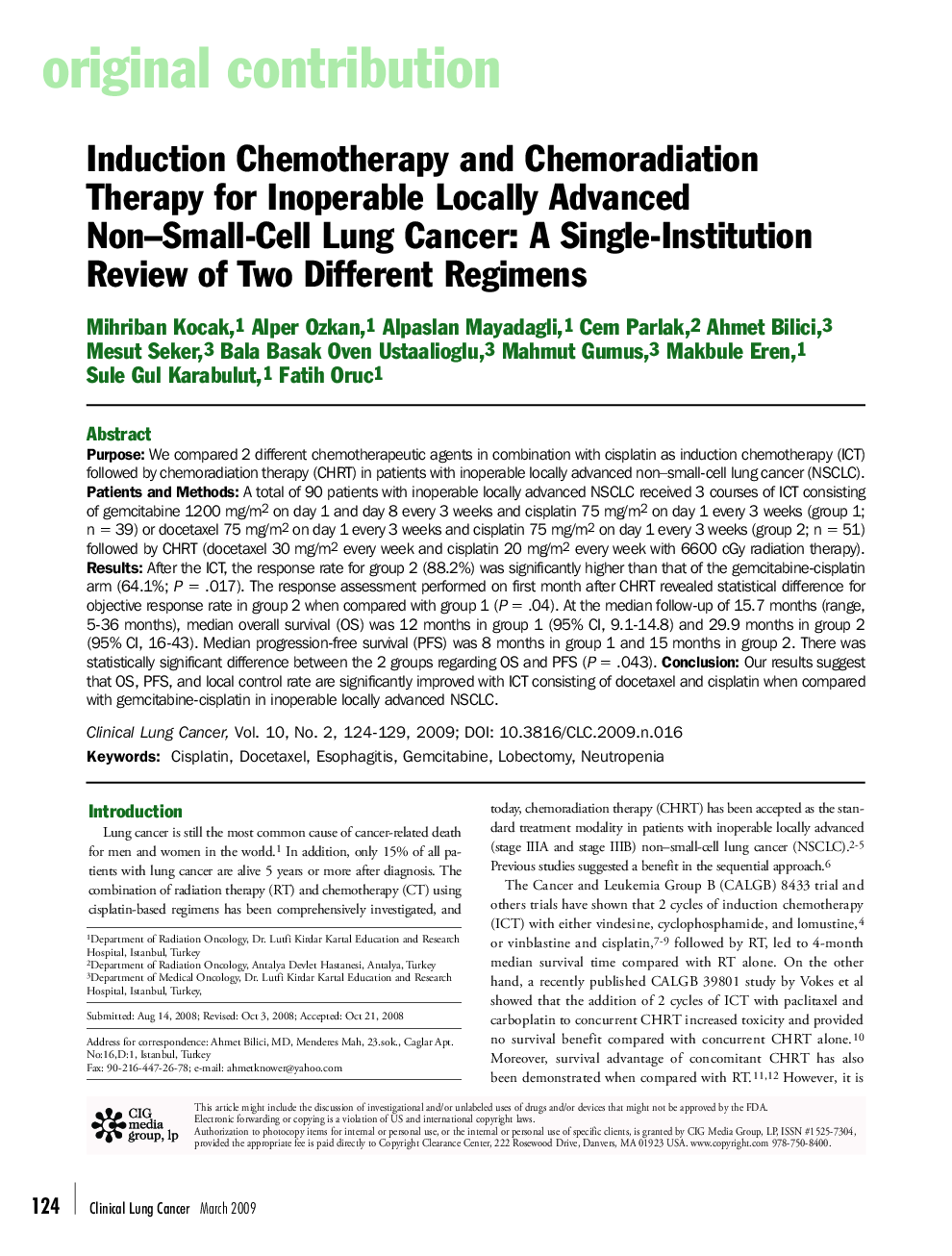| کد مقاله | کد نشریه | سال انتشار | مقاله انگلیسی | نسخه تمام متن |
|---|---|---|---|---|
| 2753271 | 1149624 | 2009 | 6 صفحه PDF | دانلود رایگان |

PurposeWe compared 2 different chemotherapeutic agents in combination with cisplatin as induction chemotherapy (ICT) followed by chemoradiation therapy (CHRT) in patients with inoperable locally advanced non–small-cell lung cancer (NSCLC).Patients and MethodsA total of 90 patients with inoperable locally advanced NSCLC received 3 courses of ICT consisting of gemcitabine 1200 mg/m2 on day 1 and day 8 every 3 weeks and cisplatin 75 mg/m2 on day 1 every 3 weeks (group 1; n = 39) or docetaxel 75 mg/m2 on day 1 every 3 weeks and cisplatin 75 mg/m2 on day 1 every 3 weeks (group 2; n = 51) followed by CHRT (docetaxel 30 mg/m2 every week and cisplatin 20 mg/m2 every week with 6600 cGy radiation therapy).ResultsAfter the ICT, the response rate for group 2 (88.2%) was significantly higher than that of the gemcitabine-cisplatin arm (64.1%; P = .017). The response assessment performed on first month after CHRT revealed statistical difference for objective response rate in group 2 when compared with group 1 (P = .04). At the median follow-up of 15.7 months (range, 5-36 months), median overall survival (OS) was 12 months in group 1 (95% CI, 9.1-14.8) and 29.9 months in group 2 (95% CI, 16-43). Median progression-free survival (PFS) was 8 months in group 1 and 15 months in group 2. There was statistically significant difference between the 2 groups regarding OS and PFS (P = .043).ConclusionOur results suggest that OS, PFS, and local control rate are significantly improved with ICT consisting of docetaxel and cisplatin when compared with gemcitabine-cisplatin in inoperable locally advanced NSCLC.
Journal: Clinical Lung Cancer - Volume 10, Issue 2, March 2009, Pages 124-129